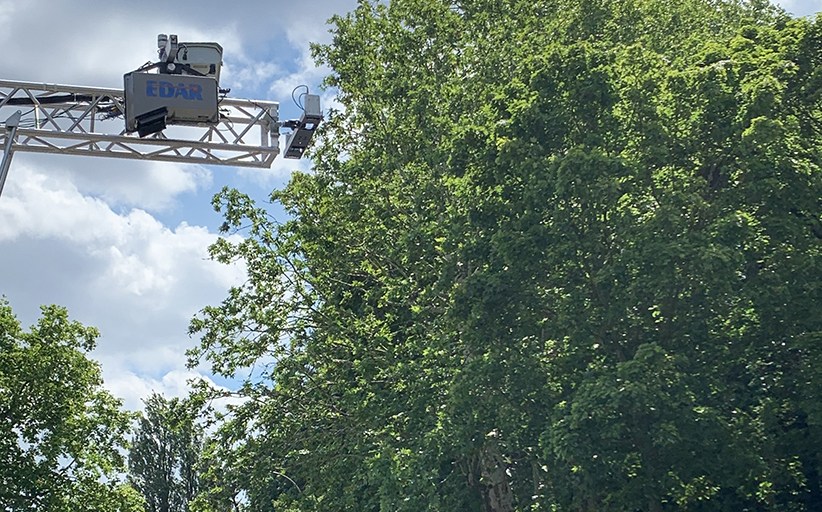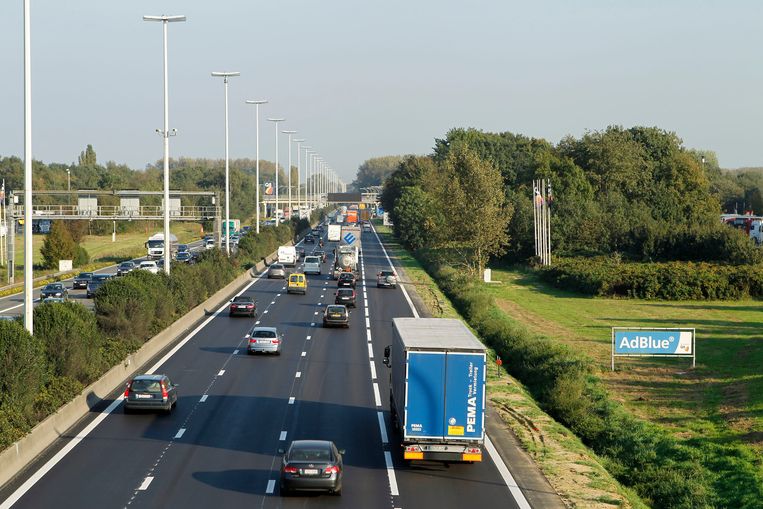A world-first pilot project tested on Flemish motorways using a measuring program of "remote sensing" has found that filter fraud is resulting in many vehicles polluting more than expected.
The emissions of over 200,000 vehicles were analysed on Flemish public roads as part of the in-depth study commissioned by the Flemish Environment Agency (VMM) and Flemish Minister for the Environment Zuhal Demir showing that air quality can improve enormously if emission fraud in Flanders is further reduced.
"In the future, the police will be able to use these remote sensing programs to remove fraudsters from traffic. Meanwhile, periodic inspections and roadside checks will also be stepped up to ensure that vehicles are not tampered with and that they continue to meet the standards," said Demir in a press statement on Wednesday.
The technology allows for measurements to be made by sensors along the road to accurately determine the emissions of passing vehicles, specifically by comparing the emissions of different vehicle models.

The 'green' remote sensor. Credit: Zuhal Demir's Cabinet
By doing so, suspect models can be investigated more thoroughly through both the vehicle owners, a small group of people that are responsible for a large proportion of air pollution by making illegal modifications, and the manufacturers, who are responsible for the poor performance of a large group of older diesel vehicles.
"Measures are based on the official emission standards of vehicles and it is not possible to take fraud into account in this. For example, you pay less road taxes for a Euro 5 diesel car than for a Euro 4 diesel car, even if the particulate filter has been removed. Yet they emit the same amount," said Demir.
In Flanders, up to 1,800 people die prematurely every year as a result of nitrogen dioxide pollution, of which traffic in the region is the largest source.
The 2020 World Air Quality report released in March found that over half (58%) of cities in Belgium averaged dangerous levels of air pollution that exceeded the WHO’s annual targets, and the top three cities with the highest air pollution are in Flanders (Brugge, Wielsbeke, and Oostrozebeke).
Technology to tackle the issue
The recent remote sensor study mapped out how it could be solved in three major areas: by stopping AdBlue fraud, which results in a failure of the substance to make the catalytic converter work, by tightening the monitoring of manufacturers and by tackling soot filter fraud, which could reduce harmful emissions by 40, 70, and even 80% respectively.
From 1 July 2022, an improved particulate filter test will be introduced that is much better at detecting soot filter fraud, and a test procedure to tackle problems with nitrogen oxide emissions is being created to curb fraud by vehicle owners, who can be taken off the road by the police and road inspectorate in the future because of the remote sensor technology.
Based on this analysis, the evaluation of the Flemish Air Policy Plan 2030 could be considered by Federal Mobility and Public Works Minister Lydia Peeters. The technology can now be deployed on a larger scale.

